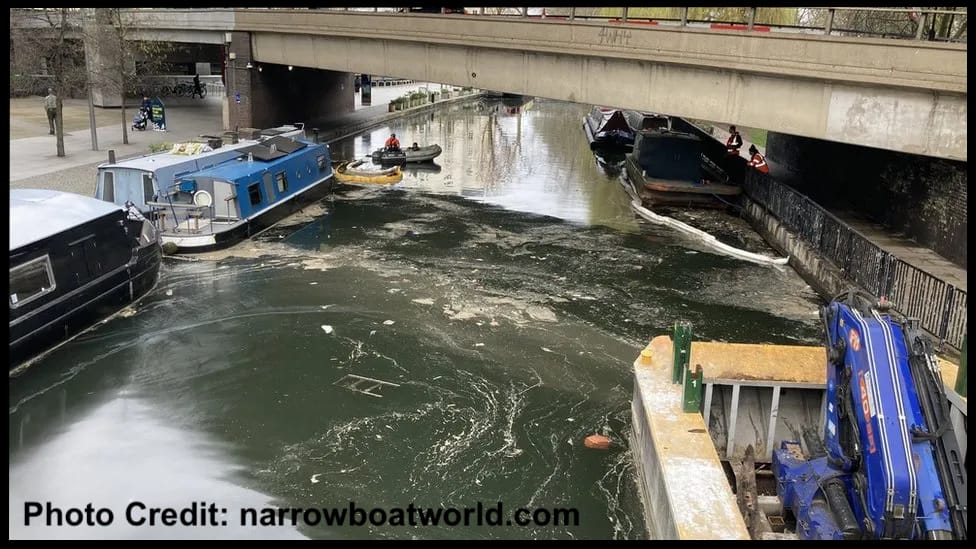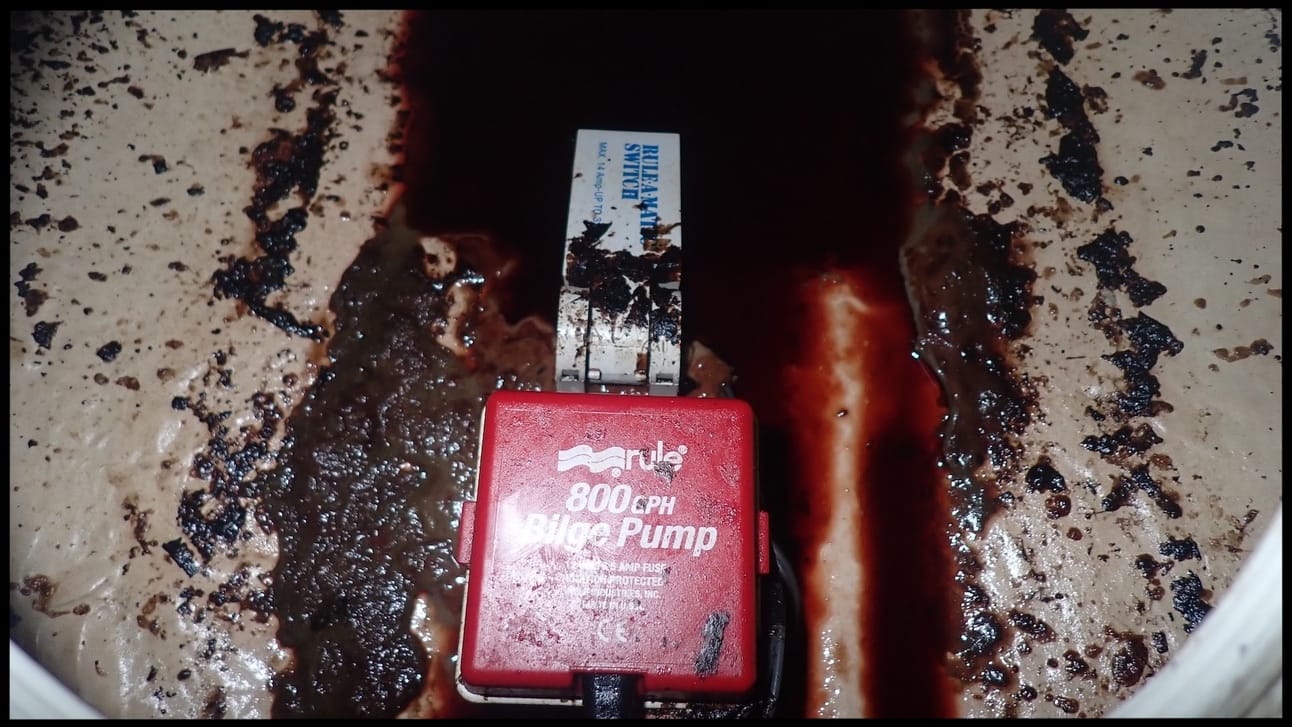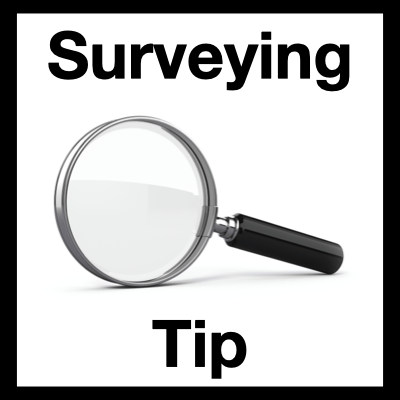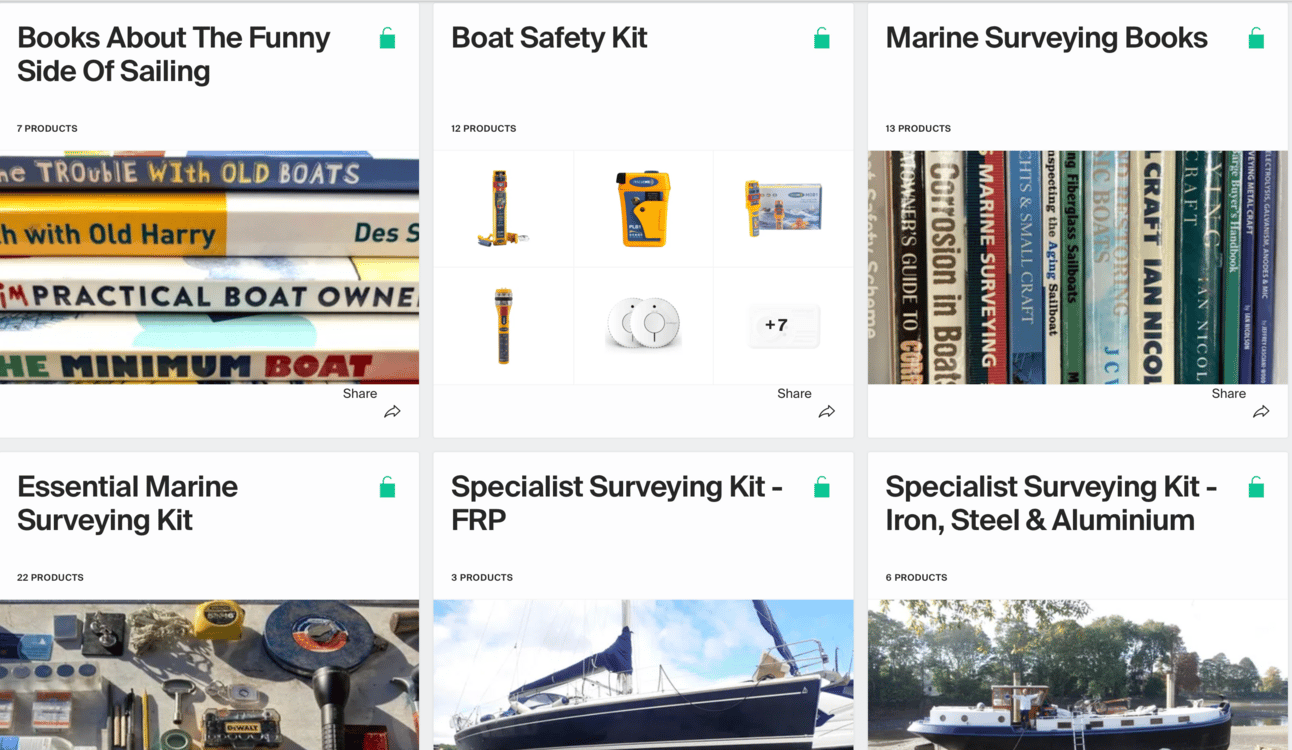
Boat Chat’s mission is to ‘Help people understand boats better’. It is published bi-monthly with a mixture of maritime news, maintenance advice, surveying tips, product reviews and other boat related stuff.
To help Boat Chat grow, please forward this email to your friends, colleagues and contacts who have an interest in boats.
Maritime News
Cooking oil swamps the Grand Union Canal

Six miles of the Grand Union Canal in London has been contaminated with what appears to have been a deliberate dumping of used cooking oil. The spill originated in the Alperton area near the North Circular Road in London and has been slowly spreading towards the centre of the capital. Having been rated a Category 3 incident by the Environment Agency, specialist contractors are working to contain and remove the contamination.
Story credit: Roger Fox at narrowboatworld 29th Feb 2024
Collaborative investigation shows ships regularly discharge ‘bilge’ water illegally
Up to 3,000 cases of oil dumped by commercial ships may be happening every year in European waters, according to a new investigation, which found the scale of illegal “bilge dumping” is likely to be far higher than publicly acknowledged.
Bilge water is a mix of liquids from the engine room of a ship along with other potentially toxic substances including lubricants, cleaning solvents and metals such as lead and arsenic, which collects at the bottom of the vessel.

A six-month investigation by Lighthouse Reports, a European non-profit newsroom, with nine publications across Europe, used satellite technology, whistleblowers’ testimonies and freedom of information requests to document hundreds of incidents of potentially illegal oil spills from ships.
Story credit: The Guardian 22nd March 2022
Links to both of these stories are in Further Reading.
Boat Chat Focus - Dirty Bilges
With the wettest February on record in many parts of the UK, every passing week brings more news of another sewage spill into the UK’s rivers and coastal waters by our water companies. Our rivers, canals and oceans seem to be under ever increasing threat from man-made pollution. Sometimes it is a deliberate act of pollution, other times it is due to infrastructure limitations or agriculture run-off and sometimes it is through ignorance.
Boat Chat’s lead stories give just two examples of how some people still regard the waterways and oceans as a free resource to abuse as they see fit to save themselves time and money. According to Surfers Against Sewage the UK is ranked last in Europe for the quality of our bathing water. The reasons are varied, the effects are largely universal – marine life and the environment are impacted and our ability to enjoy our rivers, canals and coastline suffers. We can and must do better.
In my years as a marine surveyor I have seen lots of boat bottoms and the inside of many of them were absolutely filthy. The usual cast of contaminants in most bilges are leaked engine oil and coolant, water from condensation, general rubbish and detritus and an uncanny number of 10mm sockets and spanners…

Having a dirty bilge poses several risks to any vessel including marine pollution. A dirty bilge makes fault finding so much harder, an oily bilge under an engine will always smell worse than a clean bilge and poses a far greater fire risk. An oily bilge can rather counterintuitively place steel hulls at greater risk of microbial and pinhole corrosion. Finally, if you do drop your shiny new iPhone into an oily bilge it will be a real challenge to get it clean again.
So what can the conscientious boat owner do?
Cleaning a dirty bilge is one of those jobs that is too easy to push to the bottom of the ‘To Do’ list. It takes graft, is filthy, produces plenty of contaminated waste and no-one other than your marine surveyor is ever likely to comment on your hard work! But if we are all to take our responsibilities to the environment seriously, that work is needed now more than ever.
Consider this fine example of a bilge pump found during a narrowboat survey on the River Wey in Surrey:

It was so gunked up that it was almost incapable of clearing water from the bilge. As the only bilge pump on board and with no manual backup the vessel was placed at much greater risk of sinking due to leaks or rainwater ingress through the aft engine decks.
Another example here of a pump that, whilst working, was ready to send all of this contamination into the River Exe in Devon…

The Exe Estuary was designated a SSSI (Site of Special Scientific Interest) in 1986 and fines for damaging it can be up to £20,000 plus the costs of any rectification.
The International Convention for the Prevention of Pollution from Ships (MARPOL) rules apply to ships at sea. Introduced in 1972, Annex I stipulates vessels may discharge contaminated machine space bilge water through a functioning Oily Water Separator with no greater than 15 ppm (parts per million) oil in water. Records must be kept and there are further rules relating to discharge in Special Areas and by vessel type. To put 15ppm into context – one drop of oil in 0.5 litres of water is equivalent to 40ppm.
Whilst there are no really meaningful marine pollution rules in place for private vessels in use on inland waterways or the coast, legislation is likely to come along at some point. The Port of London Authority already has Bye-law 49 in place prohibiting the discharge of untreated sewage into the River Thames. Boat Chat would be surprised if legislation governing bilge water discharge into canals and rivers was not in place within 10 years.

Interestingly, the Boat Safety Scheme (Ed. 5 2023) states at 9.1.2
“Fixed bilge pumps and fixed bilge suction lines must not draw from an engine tray or oil-tight area, unless the:
• discharge is through a bilge water filter capable of a 5ppm discharge performance level, as verified by markings on the filter or an appropriate declaration from the manufacturer or supplier; or,
• there is a facility to discharge to a holding tank.”
Most vessels have a bilge pump fitted within the engine space and not all vessels have an oil-tight engine tray to contain engine oil leaks. A bilge water filtration system would probably require modification of the existing arrangement to be effective.
There are two main suppliers of bilge water filters on the UK market; Wavestream and Bilgeaway. Both make filters that work to the 5ppm standard although they will not cope with an oil quantity greater then 0.45 litres on a single filter. A deep clean of the bilge and fixing any fuel and oil leaks must be the first step prior to investing in a bilge water filtration system.
YouTube Videos
I explore the importance of effective bilge pumps in this short video sharing my 5 essential habits to stop your boat sinking.

Effective bilge pumping systems play a vital role in preventing vessels from sinking but they have an increasingly important part to play in preventing marine pollution. All bilge pumps should be tested during survey, ideally with a supply of water if that can be arranged. Make, model, capacity, location and correct operation should all be recorded in the survey report. Do they work with the battery master switch off (and the vessel unattended)?
Given the increasing awareness of pollution dangers within the boating industry, it would be appropriate to comment on the general state of cleanliness of the bilge and the risk owners are exposed to should the contents of the bilge get pumped into the waterways.

Here is a typical paragraph covering bilge pumps from a survey report. The recommendations are rated ‘Negligible’ as they are low priority recommendations which do no affect the insurability of the vessel, present a danger to the crew and have no mandatory requirements. That would change if legislation were to be introduced covering marine pollution for small craft.
A single Johnson L450 12V electric bilge pump with integral float switch was located within a small bilge sump beneath the stern gland in the engine space. The pump body was mounted onto a small steel plate cut to fit loosely inside the bilge sump. The bilge pump was heavily contaminated with oil and sludge. It was rigged to discharge overboard; no bilge water filter was fitted. Operated in manual mode by the button on the engine control panel, pump heard working but not properly hose tested. Given the grease and other contaminants present within the bilge pump space and on the pump itself, any discharge from the bilge on this vessel would present a marine pollution risk which may attract a significant fine. This area should be cleaned out and the bilge pump flushed through with warm soapy water.
Action Needed (Negligible):
Install a bilge water filter to minimise marine pollution
Action Needed (Negligible):
Clean bilge pump and check for correct operation
Great Kit Ideas
With the sailing season just around the corner, it is time to start thinking about new gear for the boat owners or marine surveyors in your life or as a treat for your boat. I have put together several collections on Kit.Co which are all personally recommended items and most of which I own.
From boat safety equipment to books about sailing and the tools and books a marine surveyor needs; there really is something for everyone!
Boaty Terminology
Bilge Rat
A ‘spanner wanker’ or ‘stoker’ on a Royal Navy ship (properly named Marine Engineering Mechanics) because they spend so long in the bilges of the ship.
Someone who doesn’t own a boat and has no plans on owning one but likes to use yours to go fishing.
A pirate’s insult for a small, unpleasant, dirty person not deserving respect.
Links To Further Reading
How To Support Boat Chat
Boat Chat’s mission is to ‘Help People Understand Boats Better’ by looking at what is going on in the world of boating. Helping people make sense of current maritime events, offering suggestions on how to make the best / minimise the worst boating outcomes and reviewing books and products of interest to boaters.
The easiest way to support Boat Chat is by buying us a beer at:
And Finally…. 👍🏻
Please don’t forget to share this newsletter with your friends, colleagues and contacts who have an interest in boats. If you have any great ideas for future content you think would be good or want to discuss collaboration opportunities, please throw Boat Chat a line at:
And Finally, Finally…
Please note that links to products in this newsletter are typically Amazon Affiliate Links which may earn Boat Chat a small commission should you buy them using the link (this does not affect the price you pay).


